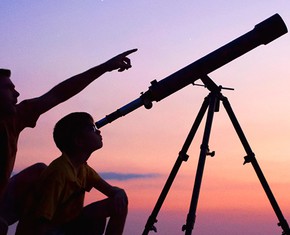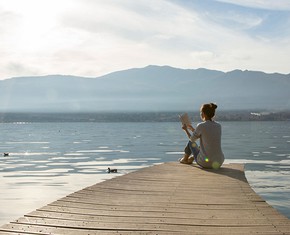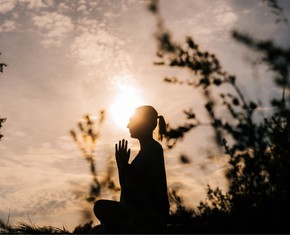The views expressed in our content reflect individual perspectives and do not represent the authoritative views of the Baha'i Faith.
I recently attended an event featuring a magician, and at some point I found myself looking at the audience and not at him. I noticed that all ages were captivated by his magic as well as his banter.
Most of the time he focused his attention on the children, inviting them to participate in some of his tricks. The children were impressed with the wow-ooh-ahh of it all, while the adults were in the how-did-he-do-that mode. Reflecting on this, I think that both reactions are desirable.
The children represent the part of us that lives in the moment. Characterized by feeling, they see wonder in nature, don’t overanalyze, and accept that not everything can be explained in terms they can presently understand. I will label this faith.
The adults are representative of the part of us that seeks understanding, knowledge. and control. Characterized by thinking, we ask questions, we value science and process, and we seek evidence or even proof. I will label this reason.
Of course, not all children think one way, just as not all adults behave another way. As people in a variety of circumstances, we are a mixture of both. This demonstrates the Baha’i principle of the essential agreement between religion and science:
If religious beliefs and opinions are found contrary to the standards of science, they are mere superstitions and imaginations.…there must be agreement between true religion and science. If a question be found contrary to reason, faith and belief in it are impossible, and there is no outcome but wavering and vacillation. – Abdu’l-Baha, The Promulgation of Universal Peace, p. 181.
Sadly, history offers ample evidence of the conflict and disunity that can result from an imbalance between these two key areas of thought and practice. Even today, many people believe that some basic opposition exists between science and religion, that one contradicts the other on some points, and that we must choose between being a religious person—a believer in a Creator—or a scientist—a follower of reason.
The Baha’i teachings say that both have a place in our lives, and both are subject to change or at least re-interpretation. What science can explain and how we understand and apply it changes over time—and the same is true of religion. Yesterday’s mysteries, once solved, can be quite ordinary. Indeed, we are surrounded by items that would have been unfathomable in times past.
If we regard science and religion in a balanced way, we find the harmony between them. Danger comes from taking either one to its extreme. More specifically, if religious beliefs and opinions are found contrary to the standards of science then they are superstitions, the result of imagination, or unfounded ritual. The reverse is true as well; just because something can’t be proved or explained does not mean it is not true. This is where faith comes into the picture. As Abdu’l-Baha said:
Religion and Science are inter-twined with each other and cannot be separated. These are the two wings with which humanity must fly. One wing is not enough. – Abdu’l-Baha, Abdu’l-Baha in London, p. 28.
As scientific inquiry advances so must our ideas be open to testing and to reshaping. I do not need science to explain everything. Rather, God (or whatever name one may prefer) is unknowable. This doesn’t scare or alarm me; I accept it as a given. After all, the Baha’i writings say,
Consider the relation between the craftsman and his handiwork, between the painter and his painting. Can it ever be maintained that the work their hands have produced is the same as themselves? By Him Who is the Lord of the Throne above and of earth below! They can be regarded in no other light except as evidences that proclaim the excellence and perfection of their author. – Baha’u’llah, Gleanings from the Writings of Baha’u’llah, p. 336.
I continue to be curious about the nature of the universe. For example, I want to know about life on other planets. I am also comforted that others with specific expertise are learning how to prevent floods in South East Asia, how to sanitize water in Africa, how to eliminate or manage diseases, and ever so much more. I don’t need to know everything myself, since humanity is increasingly taking a global approach to applying science to problems around the world.
Similarly, I don’t need to know how the magician made the rings interlock, how the card jumped from one child’s hand to another, or even how the rabbit fitted into his hat and later turned into a dove. I can enjoy the show and join the children in the wonder of it all.
You May Also Like
Comments

















The source of all learning is the knowledge of God, exalted be His Glory, and this cannot be attained save through the knowledge of His Divine Manifestation."